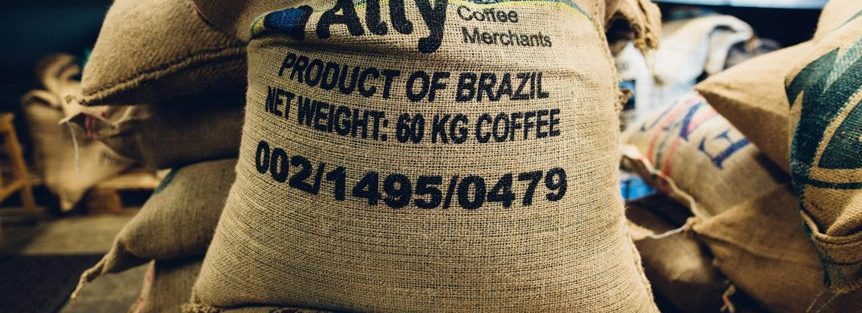At Novatia Consulting, we specialize in conducting agricultural export logistics feasibility studies in Nigeria. Our approach focuses on optimizing supply chains and enhancing market competitiveness for agricultural products. We assess current logistics challenges, including infrastructure deficits and regulatory hurdles, while providing actionable insights backed by data analysis and stakeholder input. By evaluating market demand and competition, we develop tailored strategies that correspond with international standards. Our structured process guarantees stakeholder involvement, allowing us to create solutions that foster growth and efficiency. If you're looking for effective strategies to traverse the agricultural export landscape, more valuable insights await you.
Key Takeaways
- Novatia Consulting specializes in conducting comprehensive feasibility studies for agricultural export logistics to enhance competitiveness in Nigeria's market.
- Their services include market analysis, risk assessments, and financial projections to support informed decision-making for exporters.
- Stakeholder involvement is prioritized to foster collaboration and gather insights for tailored recommendations in logistics optimization.
- Novatia employs a structured methodology combining qualitative and quantitative data collection for rigorous analysis of export logistics challenges.
- Strategic partnerships with logistics experts and local transporters are established to improve operational efficiency and expand market reach for agricultural exporters.
Importance of Agricultural Exports
Agricultural exports play an indispensable role in Nigeria's economy, contributing considerably to national income and job creation. By tapping into the global market, we can improve our economic growth while fostering sustainable practices that benefit both our environment and our communities. It's vital for us to strengthen our supply chain to guarantee that agricultural products reach international consumers efficiently and in prime condition.
To thrive in the competitive global landscape, we need to establish robust trade partnerships that prioritize quality assurance and adhere to stringent export standards. This will not only build trust with our partners but also elevate the perception of Nigerian agricultural products. In addition, we must focus on value addition; by processing raw materials domestically, we can increase their market value and create more jobs locally.
As we maneuver through these complexities, collaboration among stakeholders—farmers, exporters, and policymakers—is indispensable. Together, we can implement strategies that promote sustainable agricultural practices, improve product quality, and guarantee compliance with global export standards. Ultimately, by recognizing the importance of agricultural exports, we can drive Nigeria towards a prosperous future, benefiting both our economy and our people.
Overview of Novatia Consulting
To improve our agricultural export potential, we must consider the role of specialized consulting firms like Novatia Consulting. Novatia Services offers an extensive range of solutions tailored to the unique needs of the agricultural sector. Their consulting expertise includes in-depth market analysis and strategic planning, ensuring our agricultural products can compete effectively on a global scale.
What sets Novatia apart is their commitment to delivering actionable agricultural insights that drive informed decision-making. By staying attuned to industry trends, they provide clients with the knowledge necessary to maneuver the complexities of agricultural exports. Their approach to client involvement fosters collaboration, ensuring that our specific challenges are understood and addressed.
Moreover, Novatia's focus on service innovation allows us to leverage the latest technologies and methodologies, enhancing our logistics processes and overall export efficiency. With their support, we can identify new market opportunities, optimize supply chains, and implement best practices that contribute to sustainable growth. To sum up, partnering with Novatia Consulting equips us with the tools and insights needed to thrive in the competitive landscape of agricultural exports, ultimately enhancing our success in the global marketplace.
Understanding Logistics Challenges
Logistics challenges in Nigeria's agricultural export sector can greatly hinder our ability to meet global demand. These challenges often stem from numerous factors, including transportation inefficiencies and infrastructure deficits that disrupt the supply chain. Without efficient routes and reliable transport options, our products may struggle to reach international markets, limiting our market access.
Regulatory hurdles also complicate matters, as maneuvering the compliance landscape can be time-consuming and costly. Additionally, seasonal fluctuations and pricing volatility introduce unpredictability, impacting our capacity to plan effectively. We must prioritize quality assurance to guarantee our agricultural products meet international standards, which can be difficult amid these challenges.
Moreover, technology adoption remains a crucial area for improvement. Leveraging advanced logistics solutions can streamline operations, improve risk management, and alleviate potential disruptions. By embracing innovative tools and practices, we can tackle these logistics challenges head-on.
Key Components of Feasibility Studies
Addressing the logistics challenges we've outlined is vital for ensuring the success of our agricultural export initiatives, and this is where feasibility studies come into play. A thorough feasibility study consists of several key components that guide our decision-making process.
First, market analysis allows us to identify demand trends and competitive landscapes, ensuring our products correspond with consumer needs. Next, a detailed risk assessment helps us pinpoint potential obstacles, be they regulatory hurdles or market fluctuations. Financial projections are equally important; they provide a clear picture of expected revenues versus costs, helping us plan for profitability.
Stakeholder involvement is significant, as it involves collaborating with farmers, suppliers, and regulatory bodies to foster support and gather insights. Additionally, we must conduct an infrastructure evaluation to assess the existing logistics framework and identify gaps in the supply chain.
We should also consider the environmental impact of our initiatives, ensuring our practices are sustainable. Finally, technology integration can improve efficiency and tracking within our logistics processes. By focusing on these key components, we can create a solid foundation for our agricultural export logistics strategies.
Methodology for Conducting Studies
Conducting studies on agricultural export logistics requires a structured and methodical approach to guarantee we gather reliable data and insights. Our methodology begins with thorough data collection, utilizing both qualitative and quantitative methods to provide an extensive understanding of the logistics landscape. We employ surveys, interviews, and existing data sources to capture the perspectives of various stakeholders involved in the agricultural export process.
Next, we conduct a stakeholder analysis, identifying key players such as farmers, exporters, logistics providers, and government agencies. By analyzing their roles, interests, and challenges, we can pinpoint areas where improvements can be made and opportunities can be seized. This analysis not only informs our study but also helps us tailor our recommendations to address specific needs.
Throughout the process, we remain committed to maintaining transparency and rigor in our data collection and analysis methods. This guarantees that our findings are credible and actionable. In conclusion, our structured approach combines meticulous data collection with insightful stakeholder analysis, laying the groundwork for effective solutions in agricultural export logistics. By following this methodology, we aim to provide valuable insights that can drive positive outcomes for the agricultural sector in Nigeria.
Benefits of Tailored Solutions
In the domain of agricultural export logistics, tailored solutions offer significant advantages that can boost efficiency and effectiveness. By implementing customized strategies, we can address the unique challenges faced by exporters in Nigeria. These strategies guarantee that each aspect of the logistics process is coordinated with specific business needs, enabling smoother operations and minimizing delays.
Moreover, when we focus on optimized operations, we elevate our ability to respond to market demands swiftly. Tailored solutions allow us to streamline supply chain management, from sourcing to delivery, thereby reducing costs and improving service levels. This approach not only meets the clients' expectations but also strengthens our competitive edge in the global market.
Additionally, we can leverage data analytics to refine our customized strategies continuously. By analyzing performance metrics, we can identify areas for improvement and adapt our logistics processes accordingly. This adaptability is vital in an ever-changing industry landscape.
Case Studies and Success Stories
Success stories in agricultural export logistics can serve as powerful examples of how tailored solutions transform operations in Nigeria. One notable case involves a small-scale cassava farmer who sought to tap into the growing export market trends. By collaborating with logistics experts, we optimized their supply chain, ensuring timely delivery to international buyers. This partnership not only increased their export volume but also improved product quality, meeting global standards.
Another success story features a cooperative of cocoa farmers who faced challenges in packaging and transportation. We implemented a tailored logistics strategy, which included strategic partnerships with local transporters and international shipping companies. This collaboration led to improved efficiency and cost reductions, allowing the cooperative to penetrate new markets.
These examples underscore the importance of successful partnerships in managing the complexities of agricultural export logistics. By coordinating our expertise with the unique needs of farmers and exporters, we can drive growth and sustainability in Nigeria's agricultural sector. Through continuous analysis of export market trends, we identify opportunities for improvement and innovation, ensuring that our clients remain competitive on the global stage.
Regulatory Considerations in Nigeria
While maneuvering the agricultural export landscape in Nigeria, we must pay close attention to the regulatory considerations that can considerably impact our operations. The country's regulatory frameworks are designed to guarantee safety, quality, and sustainability, but they can also pose compliance challenges that we need to traverse effectively.
Understanding the various regulations—from import/export permits to health and safety standards—is vital for our success. The Nigerian Export Promotion Council (NEPC) and the National Agency for Food and Drug Administration and Control (NAFDAC) set forth guidelines that we must adhere to, which can be intricate and sometimes overwhelming. Failure to comply can lead to significant delays, fines, or even the rejection of our products at international borders.
To overcome these hurdles, we should develop a proactive compliance strategy. This involves staying updated on regulatory changes and working closely with local authorities to guarantee all documentation is in order. By fostering strong relationships with these regulatory bodies, we can streamline our processes, lessen risks, and improve our export capabilities. Ultimately, understanding and addressing these regulatory considerations will enable us to thrive in Nigeria's agricultural export sector.
Steps to Engage Novatia Consulting
Maneuvering the complexities of agricultural export logistics requires not only an understanding of regulatory frameworks but also strategic partnerships to improve our operational efficiency. To involve Novatia Consulting, we should begin with a thorough client onboarding process. This initial step allows us to share our unique challenges and goals, guaranteeing that Novatia fully comprehends our needs.
Once we've established clear communication, we can collaboratively define project timelines. Setting realistic deadlines is essential, as it helps us manage expectations and track progress effectively. Novatia's expertise in agricultural export logistics will guide us in developing a structured timeline that accommodates all necessary research, analysis, and implementation phases.
Next, we'll work closely with Novatia to identify key performance indicators (KPIs) that will measure our success throughout the project. This data-driven approach guarantees we're on the right path and allows us to make informed adjustments as needed.
Future of Agricultural Exports in Nigeria
The landscape of agricultural exports in Nigeria is poised for transformative growth, driven by innovations in technology and shifts in global demand patterns. We see significant market trends indicating an increasing appetite for sustainably sourced products, presenting a unique export potential for Nigerian farmers. By integrating modern technology, we can streamline processes, improve productivity, and enhance supply chain logistics.
Our focus should be on value addition, transforming raw agricultural products into premium offerings that meet international standards. Conducting a competitive analysis helps us identify our strengths and weaknesses, allowing us to capitalize on regional opportunities. For instance, certain areas may excel in specific crops, and by leveraging local expertise, we can improve our export capacity.
Moreover, we must embrace sustainability practices that not only correspond with global expectations but also attract financial incentives. Governments and international organizations are increasingly offering support for sustainable initiatives, making it easier for us to invest in eco-friendly farming methods.
Frequently Asked Questions
What Types of Agricultural Products Can Be Exported From Nigeria?
When considering export opportunities, we find that Nigeria boasts a diverse array of agricultural products suitable for international markets. Key product selections include cocoa, cashew nuts, palm oil, and yams. Each of these items not only holds potential for profitability but also corresponds with global demand trends. By analyzing market needs and understanding logistics, we can strategically position these products for export, ultimately enhancing Nigeria's agricultural sector and boosting economic growth.
How Long Does a Feasibility Study Typically Take?
When considering feasibility study duration, it usually spans from a few weeks to several months. We've found that the study timeline factors include the complexity of the project, availability of data, and stakeholder involvement. Each project's unique requirements can greatly influence how long it takes to gather insights and make informed decisions. By addressing these factors, we can streamline the process and guarantee a thorough analysis that leads to effective solutions.
What Are the Costs Associated With Conducting a Feasibility Study?
When we consider the costs associated with conducting a feasibility study, we need to focus on cost analysis and budget considerations. Typically, expenses may include research, data collection, and expert consultations. It is crucial to outline a detailed budget to account for all potential costs, ensuring we don't overlook any significant factors. By preparing thoroughly, we can better allocate resources and maximize the study's effectiveness, ultimately leading to informed decision-making.
Who Are Novatia Consulting's Primary Competitors in Nigeria?
When we explore who Novatia Consulting's primary competitors are in Nigeria, we must conduct a thorough market analysis to understand the competitive landscape. Key players often include local firms specializing in logistics and export services, as well as international consulting agencies that have established a presence. By identifying these competitors, we can pinpoint their strengths and weaknesses, helping us develop strategies to improve our own market position and deliver superior value to our clients.
Can Novatia Assist With Post-Study Implementation Support?
Absolutely, we can provide post-study guidance to guarantee a seamless shift from analysis to action. Our team specializes in crafting tailored implementation strategies that correspond with specific goals, addressing potential challenges along the way. By collaborating closely with you, we can steer through the complexities of executing recommendations, guaranteeing that every aspect of the plan is effectively implemented. Together, we'll turn insights into impactful actions for sustainable growth and success.







